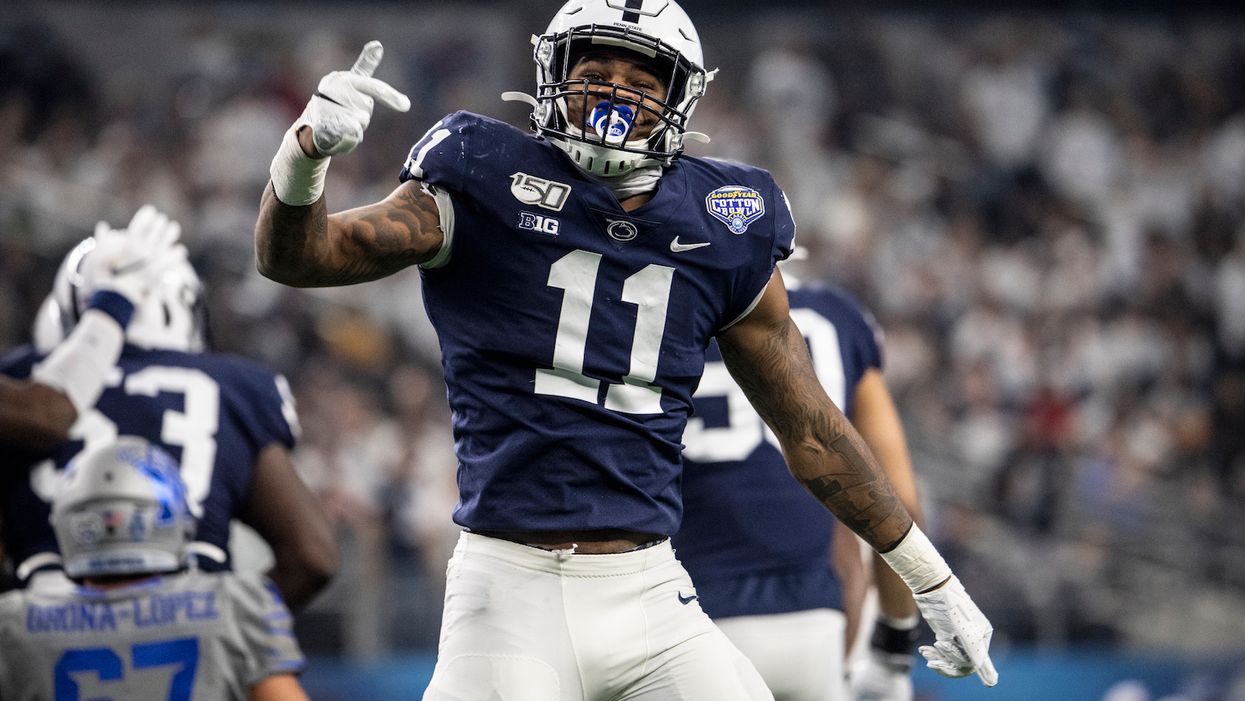
Photo by Benjamin Solomon/Getty Images

'Just is alarming'
Updated: Dr. Sebastianelli has issued a statement, which he called a "clarification," which directly contradicts his earlier comments. Dr. Sebastianelli's original, irresponsible comments have been left in this story, even though by his own admission they were based on statistics he was attempting to cite off the top of his head, and which were clearly erroneous. Dr. Sebastianelli's statement is as follows. Contrary to Dr. Sebastianelli's statement, it is not the case that "some have inferred" that his comments were related to Penn State athletes; rather, his original statement stated plainly, "When we looked at our COVID-positive athletes, whether they were symptomatic or not, 30% to roughly 35% of their heart muscles (were) inflamed."
The original story follows.
Penn State's director of athletic medicine said Monday that roughly one-third of Big Ten athletes who have tested positive for COVID-19 have heart inflammation, according to the Centre Daily Times.
Dr. Wayne Sebastianelli said during a State College Area school board of directors meeting that 30% to 35% of the infected athletes showed signs of myocarditis on their MRIs. Concern over the condition was at least part of the reason the Big Ten canceled its fall football season.
"When we looked at our COVID-positive athletes, whether they were symptomatic or not, 30% to roughly 35% of their heart muscles (were) inflamed," Sebastianelli said, the Centre Daily Times reported. "And we really just don't know what to do with it right now. It's still very early in the infection. Some of that has led to the Pac-12 and the Big Ten's decision to sort of put a hiatus on what's happening."
Myocarditis, Sebastianelli said, can have a noticeable impact on an athlete's performance capacity, and can be potentially fatal if it is not treated in a timely manner.
"You could have a very high-level athlete who's got a very superior VO2 max and cardiac output who gets infected with COVID and can drop his or her VO2 max and cardiac output just by 10%, and that could make them go from elite status to average status," Sebastianelli said. "We don't know that. We don't know how long that's going to last.
"What we have seen when people have been studied with cardiac MRI scans — symptomatic and asymptomatic COVID infections — is a level of inflammation in cardiac muscle that is just alarming," Sebastianelli continued.
The Big Ten released its fall football schedule on Aug. 5, with plans for a 10-game season beginning in early September. Six days later, the conference totally changed course, canceling the fall season and expressing hope that they could play in the spring.
At the time of the cancellation, Commissioner Kevin Warren explained to ESPN that concerns over testing and contact tracing capacity, as well as an increased number of cases, led to the cancellation.
"Trends have not improved, they've become worse," Warren told ESPN in August. "You add that up, and you're getting ready to go into more formal practice, it's just a level of not only concerns, but unknown risks are large. When you're dealing with the health of human beings, it's serious."
Between the release of the schedule and the sudden cancelation, a notable report came out — a report published by ESPN one day before the cancelation detailing concerns about myocarditis, which at that time had been found in five Big Ten athletes.
Interestingly, while Warren has canceled football for the Big Ten, his own son is set to play this fall at Mississippi State. The SEC, ACC, and Big 12 conferences did not cancel their fall schedules.